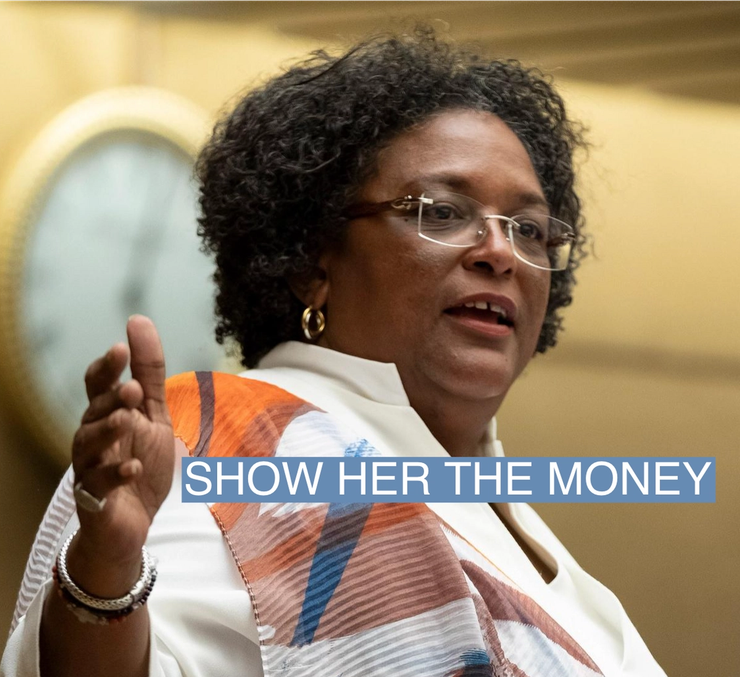The News
French President Emmanuel Macron and Barbados Prime Minister Mia Mottley will co-host a summit aimed at solving one of the biggest problems in climate policy: How to turn the trickle of international financial aid available for developing countries to cut emissions and adapt to climate impacts into a trillion-dollar torrent within the next decade.
On the table will be proposals for the most comprehensive overhaul of the global development finance system since World War II. Heads of state, finance ministers, and the new World Bank president are expected at the event in Paris on Thursday and Friday.
Tim’s view
The Summit for a New Global Financing Pact won’t clear all the bureaucratic obstacles that are clogging up the climate finance pipeline. But it marks the first time the U.S. and other rich, high-emissions countries will be under pressure to take a position on proposals that will be front and center at the meeting rather than percolating on the sidelines of climate geopolitics, as they normally are.
These ideas include allowing developing countries to suspend payments on their sovereign debts in the wake of natural disasters; creating a new agency within the World Bank to insure private-sector investments in clean energy projects against fluctuations in the local currency exchange rate; and rewriting the lending protocols for development banks so that they are less risk-averse and prioritize projects with the greatest potential to cut emissions or blunt climate impacts.
“The summit is not about ‘cough up more money now,’ it’s about getting more out of what currently exists,” said Michael Jacobs, a senior fellow at ODI, a UK think tank, and a former climate adviser to the U.K. government. “This is a moment where there could be an inflection point on some of these ideas.”
One more tangible outcome of the summit, Jacobs said, is that Macron may announce a goal to collect $100 billion in “special drawing rights” — International Monetary Fund reserve assets that countries can exchange for cash — and redirect the funds to developing countries to help pay for climate projects. These rights were allocated to rich nations during the pandemic but went unused.
Know More
The gap between the climate finance developing countries need and what they’re getting has become too big to ignore. By 2030, the demand is expected to reach $2.4 trillion per year. Today, the annual total of all development aid, for all purposes, is about $200 billion. A commitment by rich countries to raise $100 billion annually in climate finance has not been met three years after it was due, with somewhere between $25 and $84 billion raised depending on how it is tallied.
The upshot of this deficit is that lower-income countries are still too reliant on fossil fuels, and that they remain highly vulnerable to climate impacts which — via trade, migration, and other links — come back as economic and political problems for rich countries.
Room for Disagreement
The summit won’t magically conjure up trillions of dollars until the U.S. and other donors commit to raising their contributions to the World Bank. So far, the U.S. has ruled that out, at least until the World Bank gets better at investing the money it already has. So it will be important to watch whether Treasury Secretary Janet Yellen, who will be in Paris, sees any of the reforms under discussion there as the kind of ideas that would change her mind. On Wednesday, U.S. President Joe Biden and other world leaders published a letter that shifts responsibility for climate finance away from governments and more onto the private sector.
“If people look at this summit against the long list of things they desire, it’s always going to disappoint,” Avinash Persaud, Mottley’s finance adviser, said on a call with journalists this week.
The View From The Shipping Industry
A final proposal under consideration in Paris will be a new carbon tax on global ocean shipping, a large and currently unregulated source of emissions. Such a tax could raise up to $60 billion annually, and the International Maritime Organization, the U.N. agency that would need to approve it, seems potentially willing to do so. The question that remains contentious is how those funds will be used — the IMO wants to keep them within the shipping industry to offset the costs of its decarbonization efforts, while Persaud and others have argued for the money to flow into an account for climate reparations payments to developing countries.
Notable
- The World Bank is also developing new ways to bolster the market for carbon offsets, which U.S. climate envoy John Kerry has promoted as a promising means of raising climate finance. The bank’s insurance arm will soon offer political risk coverage to carbon offset project developers, most of which are based in the U.S. and Europe, to protect against the risk that developing country governments move to seize more of the profits from carbon offset projects located in their countries, as Zimbabwe and others have done recently, Climate Home News reported.


